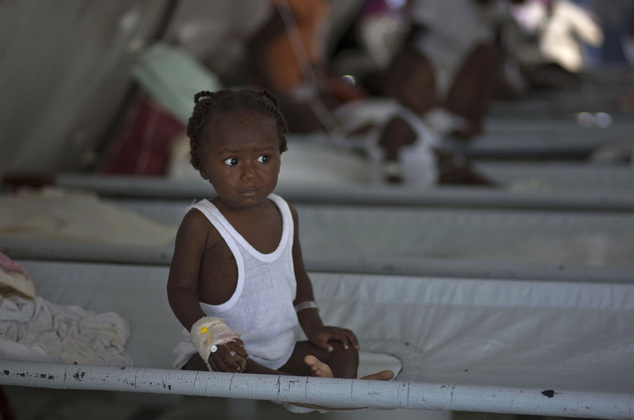-
Tips for becoming a good boxer - November 6, 2020
-
7 expert tips for making your hens night a memorable one - November 6, 2020
-
5 reasons to host your Christmas party on a cruise boat - November 6, 2020
-
What to do when you’re charged with a crime - November 6, 2020
-
Should you get one or multiple dogs? Here’s all you need to know - November 3, 2020
-
A Guide: How to Build Your Very Own Magic Mirror - February 14, 2019
-
Our Top Inspirational Baseball Stars - November 24, 2018
-
Five Tech Tools That Will Help You Turn Your Blog into a Business - November 24, 2018
-
How to Indulge on Vacation without Expanding Your Waist - November 9, 2018
-
5 Strategies for Businesses to Appeal to Today’s Increasingly Mobile-Crazed Customers - November 9, 2018
Haiti cholera victims welcome United Nations recognizing role in outbreak
Already one of the world’s poorest countries, Haiti was reeling from a devastating quake on January 12, 2010, that killed more than 200,000 people when its misery was compounded by the cholera outbreak.
Advertisement
Draft language of the report, prepared by New York University law professor Philip Alston, who serves as a special rapporteur advising the UN on human rights issues, stated that the epidemic “would not have broken out but for the actions of the United Nations”, according to The New York Times. This week though, Farhan Haq, spokesperson for UN Secretary-General Ban Ki-moon, admitted that the world body had a “moral responsibility to the victims”. They want the U.N.to end cholera by installing a national water and sanitation system; pay reparations to cholera victims and their families; and publicly apologize for bringing cholera to Haiti. Close to 10,000 people died after infected bacteria, reportedly passed on by a group of Nepalese troops aiding the quake relief effort that entered the water supply through an open sewer pipe.
“The secretary-general deeply regrets the awful suffering the people of Haiti have endured as a result of the cholera epidemic”, the statement said.
“This is a groundbreaking first step towards justice”, said Beatrice Lindstrom of the Institute for Justice & Democracy in Haiti (IJDH), one of the lawyers oursuing legal action against the UN.
A 2011 study by the U.S. Centers for Disease Control and Prevention said United Nations peacekeepers from Nepal, where cholera is endemic, were the likely cause of the outbreak of the water-borne disease.
The statement was prompted by a decision handed down Thursday by the 2nd U.S. Circuit Court of Appeals in NY which upheld a lower court’s decision the United Nations can not be sued in U.S. courts.
Vanessa Rouzier examines a child suffering cholera symptoms, as his mother watches, inside Haiti’s first permanent cholera center, run by Gheskio Centers, in downtown Port-au-Prince, Haiti.
Since the outbreak began in 2010, the United Nations has said it has worked to tackle cholera in Haiti and the neighboring Dominican Republic, through a multi-billion donor aid program to improve sanitation and an oral vaccine program against cholera.
While the number of cholera cases has been significantly reduced from the initial outbreak in 2010, the fact that the preventable disease is still routinely sickening and killing Haitians is galling to many.
Cholera, a water-borne disease, has killed more than 9,000 Haitians and infected over 770,000 since the outbreak began in 2010, United Nations figures show. The peacekeepers on mission in Haiti were stationed near a river and discharged raw sewage. The disease is typically contracted through contaminated food or water. “The secretary-general urges member states to demonstrate their solidarity with the people of Haiti by increasing their contributions to eliminate cholera and provide assistance to those affected”, the statement said.
“He said it is high time that the United Nations proves to the world that “‘human rights for all’ means for Haitians, too”.
Advertisement
While the U.N.’s latest statements don’t go as far as to shoulder the entire blame, they represent a significant shift from the position maintained over the past six years.





























